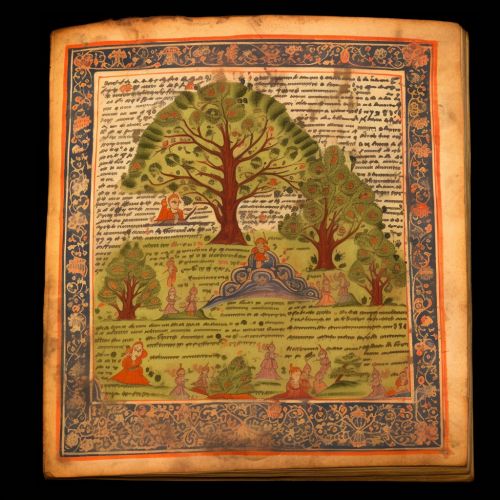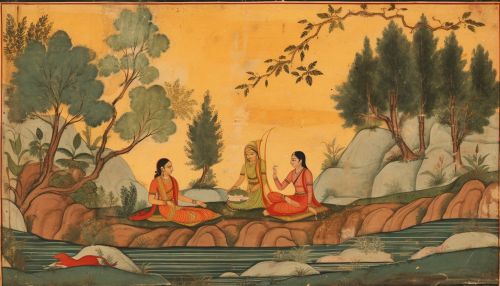Vedic literature
Origins and Development
Vedic literature, the body of texts originating within ancient Indian culture, is a significant part of the broader field of Indian literature. The earliest of these texts is the Rigveda, composed between 1500 and 1200 BCE. The Vedic period, during which these texts were composed, is a critical era in Indian history, marking the formation of Hindu philosophy, culture, and religion.


The Vedic literature corpus is traditionally divided into two broad categories: the Vedas and the Vedangas. The Vedas, considered the most sacred texts of Hinduism, are further divided into four groups: the Rigveda, the Yajurveda, the Samaveda, and the Atharvaveda. Each Veda is then sub-divided into two major text types – the Samhitas (hymns) and the Brahmanas (commentaries).
The Vedangas, on the other hand, are six auxiliary disciplines traditionally associated with the study and understanding of the Vedas. These include Shiksha (phonetics), Chandas (metrics), Vyakarana (grammar), Nirukta (etymology), Kalpa (ritual), and Jyotisha (astronomy).
Content and Themes
The Vedic texts contain a wide range of themes, from cosmological to ritualistic, ethical to metaphysical. The Rigveda, for instance, contains hymns dedicated to various deities, primarily Agni (fire), Indra (king of gods), and Varuna (cosmic order). The Yajurveda, on the other hand, is more concerned with the rituals and ceremonies associated with sacrifice, while the Samaveda is essentially a book of chants. The Atharvaveda, the latest of the four Vedas, contains spells and charms, reflecting a more popular religion.
The Brahmanas, which accompany the Samhitas, provide explanations of the hymns and rituals, often through the medium of myth. They are a significant source for understanding ancient Indian society, as they reflect the social and religious milieu of the time.
Influence and Legacy
The Vedic literature has had a profound influence on Indian culture and thought. The philosophical concepts developed in the later Vedic texts, particularly the Upanishads, form the basis of many schools of Indian philosophy. They also significantly influenced the development of Indian religions, including Hinduism, Buddhism, and Jainism.
The rituals and ceremonies described in the Vedic texts continue to be performed in some form or other in contemporary Hindu practice. The hymns and chants have also been preserved, being recited during religious ceremonies and rites of passage.
